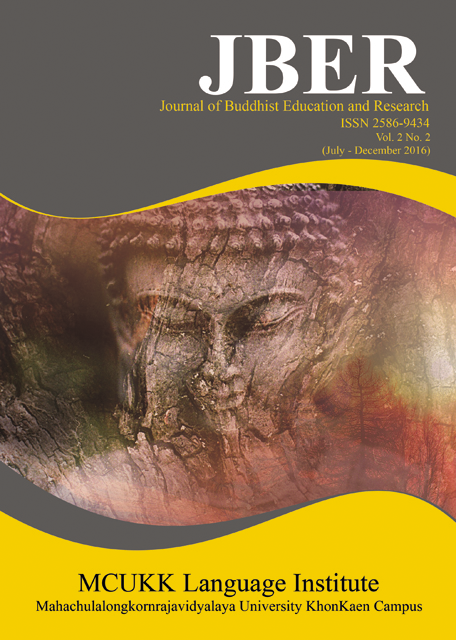The Buddha - Cariya : The Great Conduct For The World Peace
Keywords:
The Buddha, Conducts, World PeaceAbstract
The main purpose of this article paper is to study the roles and duties of the Buddha in various capacities, which reflects the Buddhist view of living. It focuses and analyses those acts which the Buddha has conducted for the well beings of the world, for the benefit of His relatives and conducts that benefit the title of the Buddha himself, the light of the world, who removed the veil ignorance. In includes the Buddhist ethical perspective of the Buddha-carityas as found mention in the Theravada Tipitaka scripture, the Atthagathas (commentaries) and other Buddhist scriptures. The study of the Buddha-cariya reveals how the birth of Buddha into this world is not merely accidental but is a result of a disciplined life and tireless effort on the part of potential Buddha. Consequently, the Buddha-cariya is the best practice for leading human being to achieve the world peace and to attain the final higher peace, i.e. Nibbana.





